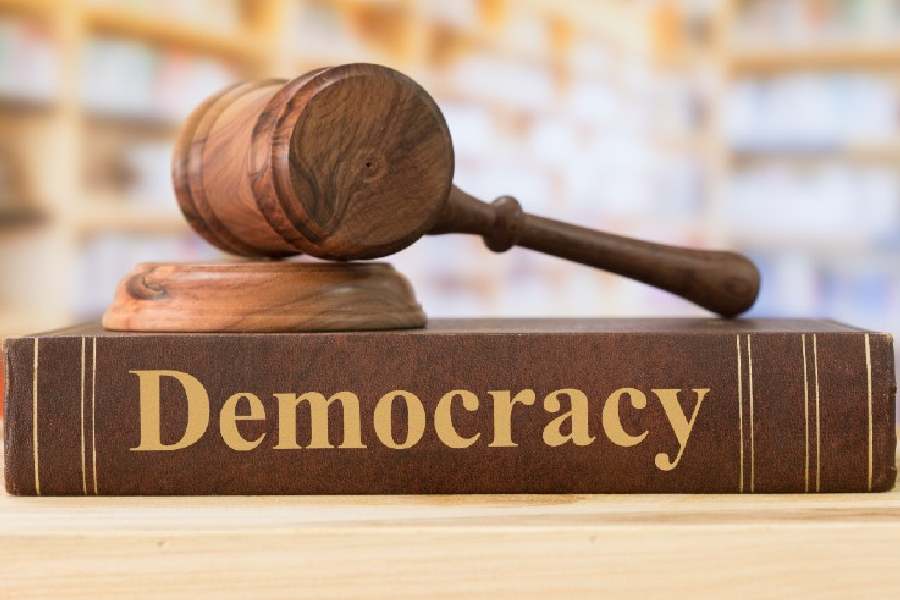A report by the United Nations has issued a note of caution about the growing online dominance of the “right-wing violent extremist form of Hindutva ideology”. The
report, Right- and left-wing violent extremist abuse of digital technologies in South America, Africa and Asia, co-published by the United Nations Interregional Crime and Justice Research Institute and the VOX-Pol Institute, has documented that actors and groups subscribing to this ideology are leveraging both mainstream and niche websites, social media platforms, and messaging apps to disseminate propaganda, spread misinformation, mobilise supporters, and organise and coordinate violence.
While a complex digital ecosystem is driven by the official accounts of the Rashtriya Swayamsevak Sangh, the Vishwa Hindu Parishad, and the Bajrang Dal, a parallel network of political activists — ‘Cyber Hindus’ — supports these groups and edits, reformats and reinterprets messages on third-party troll pages and WhatsApp groups. This network engages in online harassment against perceived enemies. Additionally, the imageboard websites, BharatChan and IndiaChan, were found to be promoting “explicit incitement to violence against Muslims”, “anti-Semitism” and “Hindu supremacism”.
WhatsApp has been used by right-wing extremists to organise and co-ordinate
violence, said the report. This revelation has reinforced the findings by Mohan J. Dutta in his study, Digital platforms, Hindutva, and disinformation: Communicative strategies and the Leicester violence, which stated “digital infrastructure of Hindutva seeds, circulates and amplifies Islamophobic hate, interacting bidirectionally with brick-and-mortar violence.” The UNICRI-VOX-Pol Institute report also stated that Hindutva extremists run hacking groups that frequently carry out disruptive cyber attacks against “perceived enemies”, including Islamic targets and websites linked to Pakistan, China, Palestine, and Indonesia. Their common tactics include Distributed Denial of Service attacks, website defacement, and CCTV breaches. One such group, the Indian Cyber Force, active on Telegram, X, and Instagram, had launched a DDoS campaign targeting Canadian institutions around the time tensions were running high between India and Canada following the killing of Hardeep Singh Nijjar.
Hindu extremists have been pushing the global Hindutva project against the liberal world order and learning new strategies from extremist counterparts elsewhere. The report notes that IndiaChan and BharatChan are inspired by their Western counterparts in layout, community culture, and ideological tendencies. Dutta’s study had mapped the global spread of Hindutva, connecting the Indian diaspora with India through a narrative of the “Hindu in danger”. This framework intersects with White supremacist ideologies, contributing to the creation and the amplification of Islamophobic hate. The Bharatiya Janata Party claims that democracy has been prevalent in India and has been promoting India as vishwaguru under Prime Minister Narendra Modi. It reacts sharply to any criticism from the liberal bloc in the West over attacks on India’s religious minorities by labelling it as ‘anti-India’.
In addition to the right-wing threats, the report also highlighted that India’s left-wing extremist group, the Communist Party of India (Maoist), receives backing from global leftist networks in aiding its online propaganda. Although their digital presence is much smaller than that of right-wing extremists, the report cited Indian investigations into the movement’s use of encrypted emails and the dark web to procure arms, explosives, and combat materials.
In a democracy, the authorities must crack down on all forms of extremist movements regardless of their ideology. Is it unreasonable to expect this from those who claim to be leading the ‘mother of democracy’? Or do they feel that some extremists are more equal than others?
Sonia Sarkar is an independent journalist covering conflict, religious extremism and political violence in Asia











